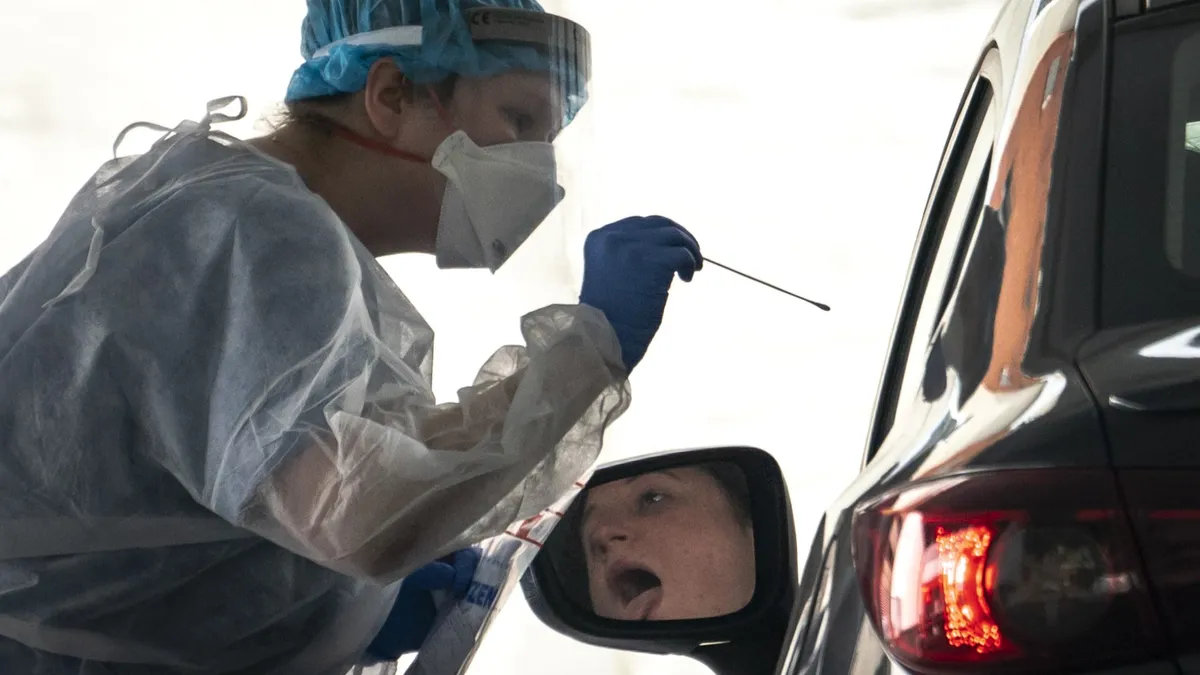Dive Brief:
- The Food and Drug Administration wants most developers of COVID-19 tests to pursue De Novo classification or 510(k) clearance to get their products to market.
- Under the updated policy, the FDA will only review “a small subset” of requests for emergency use authorization, the route via which tests have typically come to market in the pandemic.
- The FDA changed its policy after concluding that, with more than 430 EUAs for distinct COVID-19 tests, the U.S. has sufficient testing capacity and most future filings should use traditional routes.
Dive Insight:
The EUA route allowed the U.S. to quickly establish a range of COVID-19 testing options, after struggling to increase capacity in the early weeks of the pandemic. However, with multiple PCR and rapid tests now available, including kits available over the counter, the FDA has decided EUA should no longer be the standard option, said Jeff Shuren, director of the FDA’s Center for Devices and Radiological Health.
“Taking into account the current status of manufacturing capacity and consumer access given the Administration’s important investments in tests, for most new tests, shifting to traditional pre-market review would best meet the public health needs at the current stage of the COVID-19 public health emergency,” Shuren said in a statement.
The FDA will generally focus on original and supplemental EUA requests from “experienced developers” of certain types of test. Diagnostics that are likely to have a significant benefit to public health, such as those that use new technologies, will still receive EUA, as will tests that are likely to address an unmet need such as detecting a new variant or subvariant.
Requests from, or supported by, a U.S. government stakeholder, such as tests funded by the Biomedical Advanced Research and Development Authority or the National Institutes of Health’s Rapid Acceleration of Diagnostics, will also continue to benefit from the EUA pathway.













